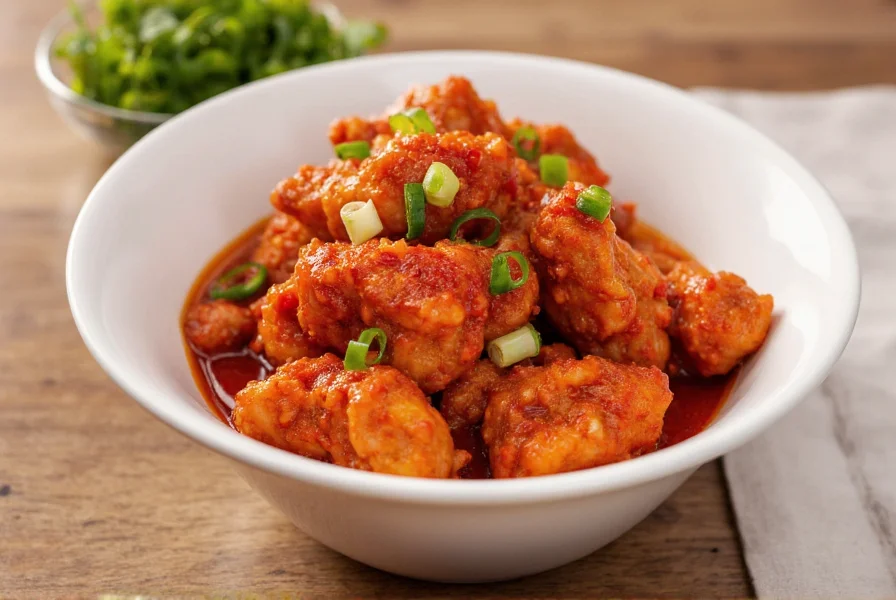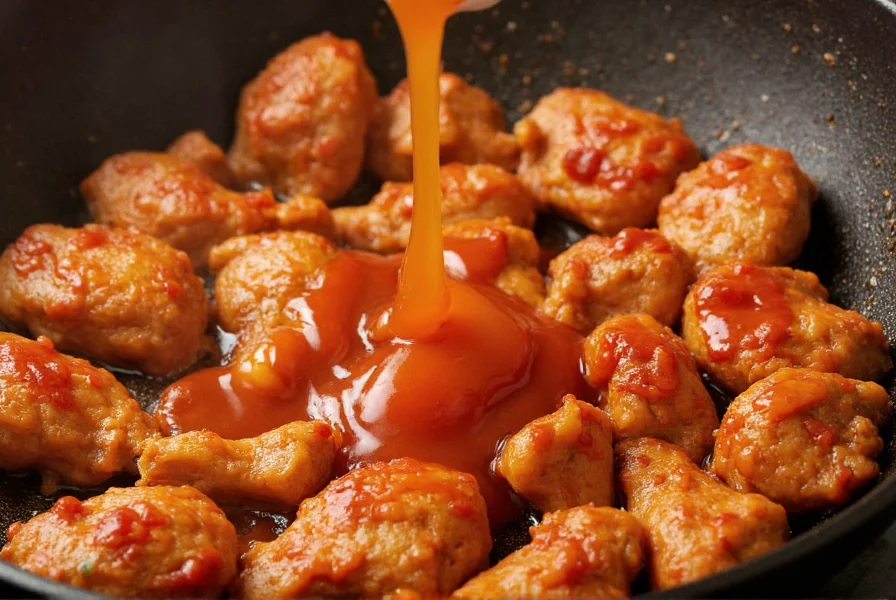Originating from the vibrant Indo-Chinese culinary tradition, chili chicken has become a staple in restaurants worldwide and a favorite for home cooks seeking bold flavors. Unlike Western interpretations of Chinese cuisine, this dish authentically blends Indian spice preferences with Chinese cooking techniques, creating something uniquely delicious.
The Cultural Journey of Chili Chicken
While chili chicken appears to have Chinese origins, its modern form actually emerged from the Chinese immigrant community in Kolkata, India during the mid-20th century. These immigrants adapted their traditional recipes to incorporate local Indian ingredients and spice preferences, giving birth to what we now recognize as Indo-Chinese cuisine. The dish gained widespread popularity through Indian-Chinese restaurants across the subcontinent before spreading globally.
Essential Ingredients for Authentic Flavor
The magic of perfect chili chicken lies in its carefully balanced ingredients. Each component serves a specific purpose in creating the complex flavor profile that makes this dish so addictive.
| Ingredient | Function | Recommended Quantity (for 4 servings) |
|---|---|---|
| Boneless chicken thighs | Superior flavor and moisture retention | 500g, cut into 1-inch pieces |
| Cornstarch | Crispy coating that stays crunchy | 1/2 cup for frying, 2 tbsp for sauce |
| Fresh green chilies | Authentic heat source (adjustable) | 3-4, sliced diagonally |
| Ginger-garlic paste | Aromatic base for the sauce | 1 tbsp each |
| Soy sauce | Umami foundation | 2 tbsp |
| Vinegar | Tangy counterpoint to richness | 1 tbsp |

Step-by-Step Preparation Guide
Mastering chili chicken requires attention to technique, particularly in the frying process and sauce consistency. Follow these professional tips for restaurant-quality results at home.
Perfecting the Chicken
Cut chicken into uniform 1-inch pieces for even cooking. Create a slurry of cornstarch, egg white, salt, and a pinch of baking powder. The baking powder creates microscopic bubbles that dramatically increase crispiness. Marinate for 20 minutes, then double-fry: first at 325°F (163°C) for 3 minutes to cook through, then at 375°F (190°C) for 1-2 minutes for maximum crispness. This double-frying technique prevents sogginess when tossed in sauce.
Building the Signature Sauce
The sauce makes or breaks your chili chicken. Start by stir-frying onions, bell peppers, and fresh green chilies in high smoke-point oil until slightly charred at the edges. Add ginger-garlic paste and cook until fragrant but not browned. Create a slurry with cornstarch, soy sauce, vinegar, sugar, and chicken stock. The critical ratio is 2:1:1 for soy sauce:vinegar:sugar. Pour the slurry into the wok and bring to a rapid boil until it thickens to a glossy, coat-the-back-of-a-spoon consistency.
Common Mistakes to Avoid
Many home cooks encounter issues with chili chicken that can be easily prevented with proper technique:
- Soggy chicken - Caused by single frying or adding sauce while chicken is still hot. Let fried chicken rest for 2 minutes before saucing.
- Bland sauce - Failing to properly caramelize the aromatics. Cook ginger-garlic paste until the raw smell disappears.
- Overcooked vegetables - Add bell peppers last as they cook quickly and lose crunch.
- Floury sauce - Not cooking the cornstarch slurry sufficiently. Boil for at least 30 seconds after thickening.
Serving Suggestions and Variations
Traditional chili chicken shines when served immediately while the coating remains crisp. Pair with steamed jasmine rice or egg fried rice for a complete meal. For appetizer portions, serve with small forks or skewers.
Regional variations include:
- Schezwan style - Incorporates Schezwan sauce for numbing heat
- Dry version - Minimal sauce, maximum crispiness
- Gravy version - Extra sauce for spooning over rice
- Vegan alternative - Using tofu or seitan instead of chicken

Storage and Reheating Tips
While chili chicken tastes best fresh, you can store leftovers in an airtight container in the refrigerator for up to 2 days. To maintain crispiness when reheating, avoid the microwave. Instead, spread the chicken in a single layer on a baking sheet and reheat in a 375°F (190°C) oven for 8-10 minutes until hot and crisp. The sauce may separate slightly when reheated - a quick toss in a hot wok with a splash of water will restore its glossy texture.
Frequently Asked Questions
What's the difference between chili chicken and chicken manchurian?
Chili chicken features a dry or semi-gravy preparation with visible vegetables and a spicy, tangy sauce, while chicken manchurian is typically served in a thicker, brown gravy with more sauce. The cooking technique for the chicken also differs, with manchurian often using a softer coating.
Can I make chili chicken without deep frying?
Yes, you can air-fry chili chicken for a healthier version. Toss the marinated chicken in cornstarch, spray lightly with oil, and air-fry at 400°F (200°C) for 12-15 minutes, flipping halfway. The texture won't be identical to deep-fried, but it will still be delicious with proper sauce application.
How can I adjust the spiciness level of chili chicken?
Control heat by adjusting the number of green chilies and their seeds. For mild version, remove all seeds and membranes. For extra heat, add red chili flakes or a few drops of chili oil at the end. Remember that the heat will mellow slightly as the dish sits.
Why does my chili chicken sauce become watery?
Watery sauce typically occurs when the cornstarch slurry isn't properly cooked or when too much liquid is added. Ensure your sauce reaches a rolling boil after adding the slurry, and reduce liquids slightly if using vegetables with high water content like tomatoes. Toss the chicken in the sauce just before serving to prevent moisture transfer.
What are the best vegetables to include in chili chicken?
Traditional chili chicken uses onions, bell peppers (capsicum), and spring onions. For authentic flavor, include fresh green chilies. Some variations add carrots or baby corn, but purists stick to the classic trio of onion, bell pepper, and green chili for optimal texture and flavor balance.











 浙公网安备
33010002000092号
浙公网安备
33010002000092号 浙B2-20120091-4
浙B2-20120091-4